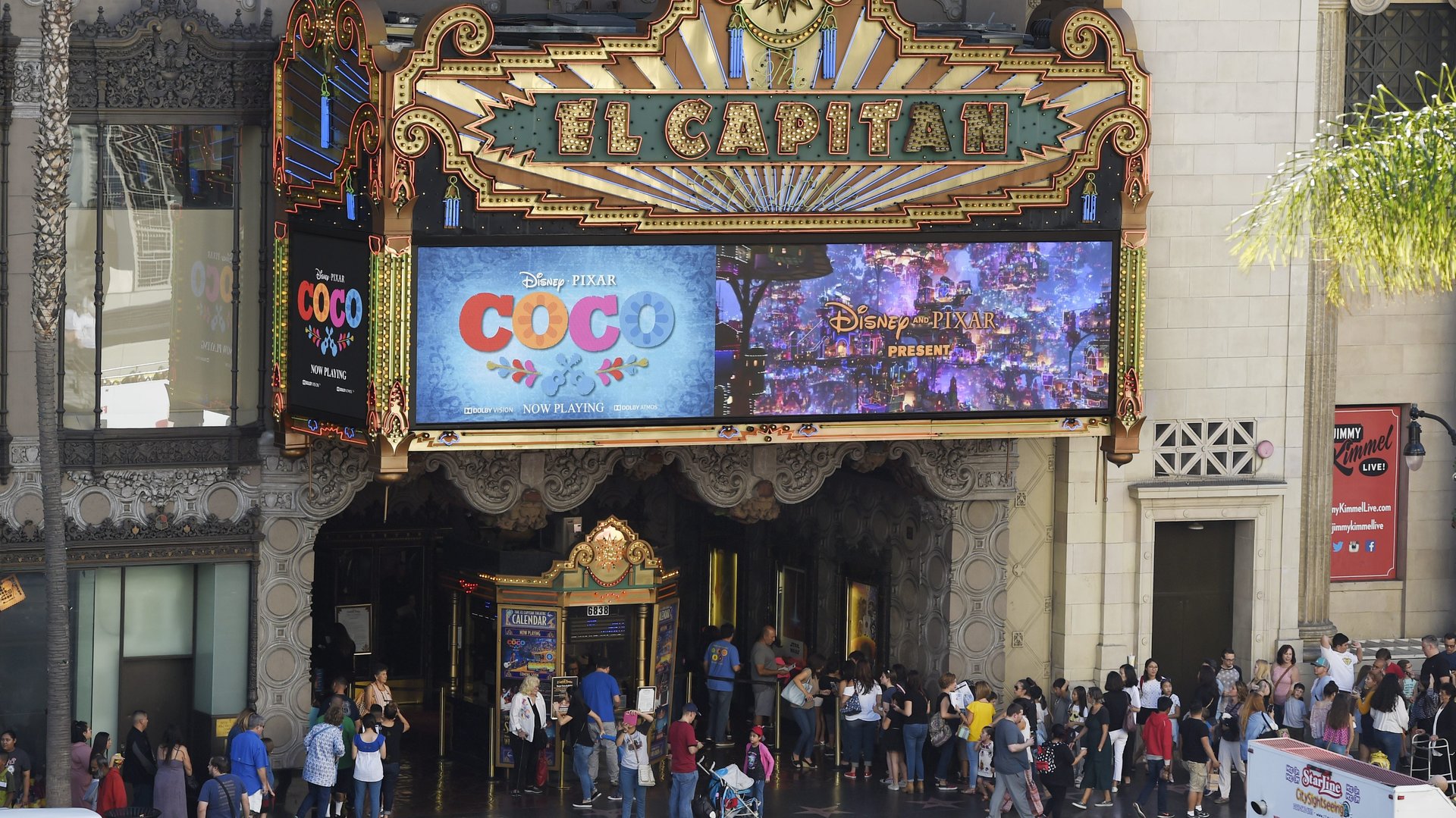MoviePass wants in on every aspect of your movie night
MoviePass—the Netflix for cinemas that gets theatergoers into a 2D movie each day for a flat $9.95 monthly fee—is looking beyond the movie theater to make money. It wants a piece of every aspect of your movie night, from dinner beforehand to drinks afterward.


MoviePass—the Netflix for cinemas that gets theatergoers into a 2D movie each day for a flat $9.95 monthly fee—is looking beyond the movie theater to make money. It wants a piece of every aspect of your movie night, from dinner beforehand to drinks afterward.
The company plans to use the data it gathers on subscribers, including where they live, when and where they go to the movies, and what they do before and after, to take a cut from businesses that want to get in on the theatergoing experience.
MoviePass has subscribers’s mailing and billing addresses, and its customers grant the company access to their locations via its app to find showtimes and check in to theaters. “We get an enormous amount of information,” CEO Mitch Lowe said at Winston Baker’s Entertainment Finance Forum on Mar. 2, Media Play News reported. “We watch how you drive from home to the movies. We watch where you go afterwards.”
Armed with that data, when you check into a movie, MoviePass could direct you to a nearby restaurant to have dinner before or after, and negotiate a cut with the restaurant for your patronage.
It’s already doing something similar with cinemas. It pays theater operators for each ticket MoviePass subscribers use—banking on a gym-like model where some customers won’t go to theaters regularly and subsidize the cost of those who do. It’s also cutting deals with exhibitors to get discounts on the ticket price or money back for the theatergoers it sends to them. And it’s looking to land similar revenue-sharing deals for concessions, so it can make money from the popcorn, candy, and sodas that its subscribers buy at cinemas. It recently cut ties with 10 AMC locations for refusing to play ball on either front.
Revenue-sharing deals with restaurants and other vendors are the next step, Lowe said. “Our bigger vision is to build a night at the movies,” he said.
MoviePass also has to show it can be profitable at the low rate of $9.95 per month per subscriber for nearly unlimited viewing. That’s not much more than the roughly $9 the average movie ticket costs in the US. The seven-year-old company, majority owned by Helios and Matheson Analytics, has about 2 million subscribers.
The company has turned to other revenue streams, as well. Movie studios pay the service to promote films like Lady Bird and I, Tonya to subscribers. Earlier this year, it began investing in indie movies, betting that its users will make them more valuable; audiences are more willing to take risks on a lesser known titles when they’re baked into the cost of their subscriptions.